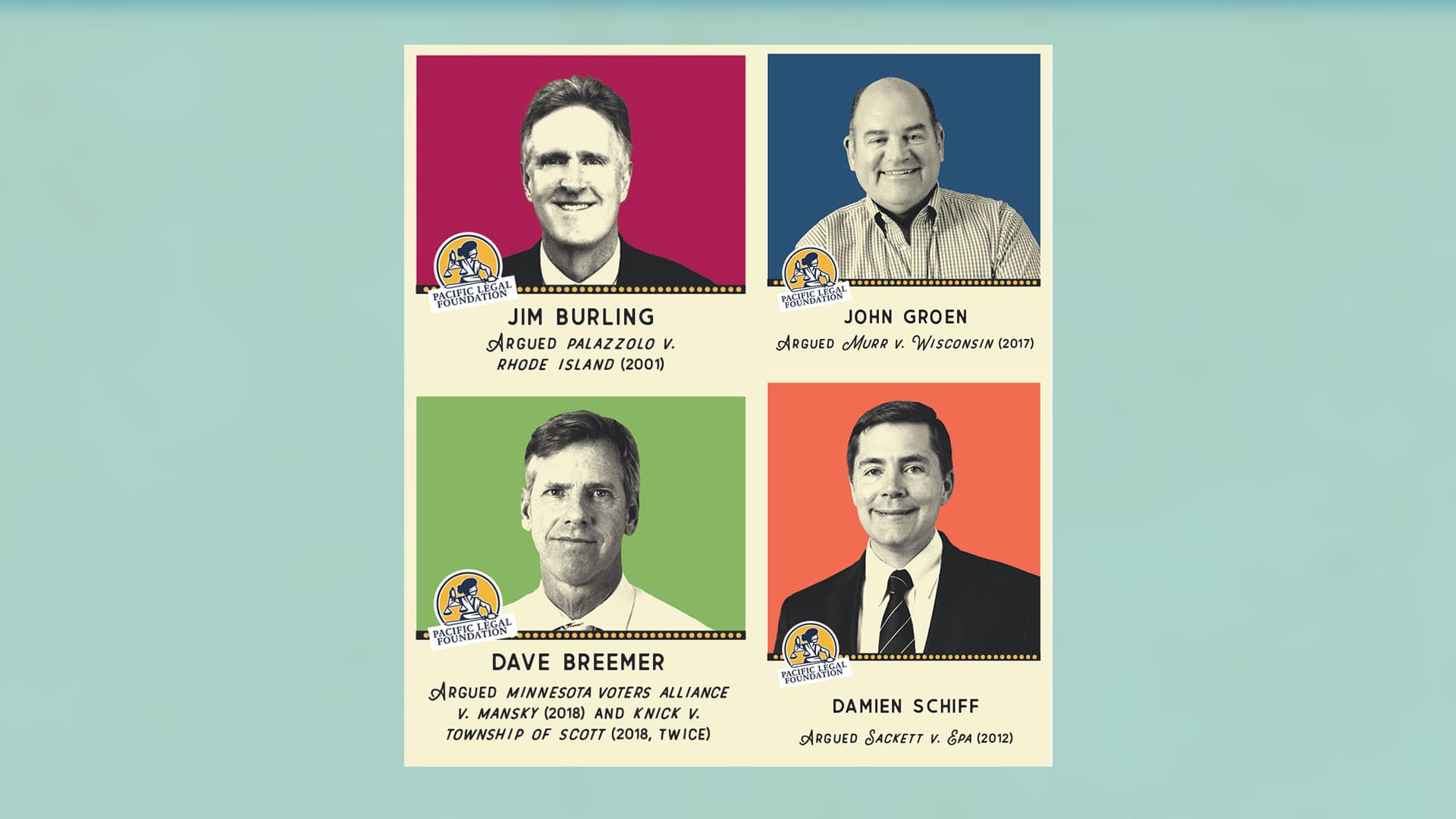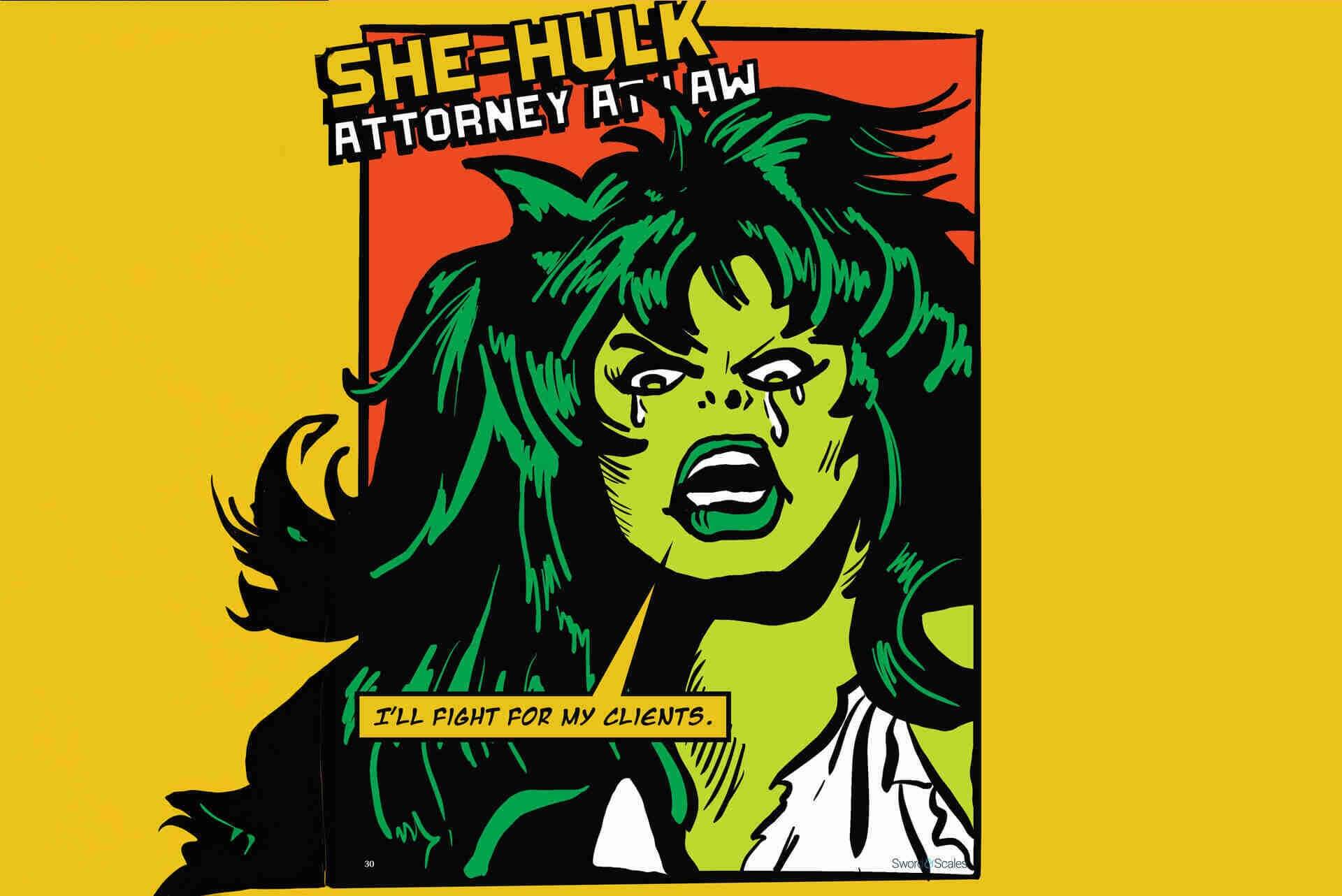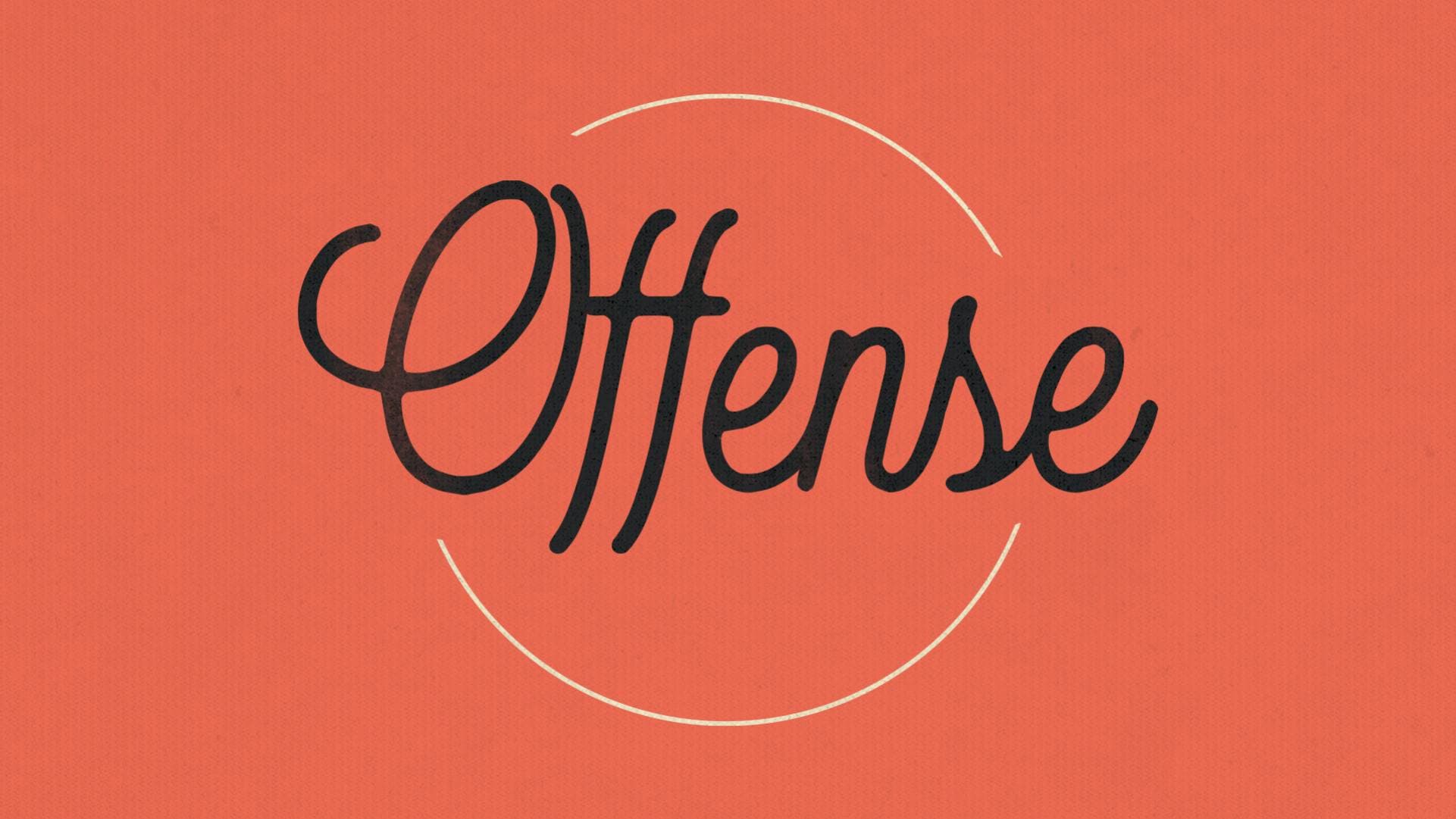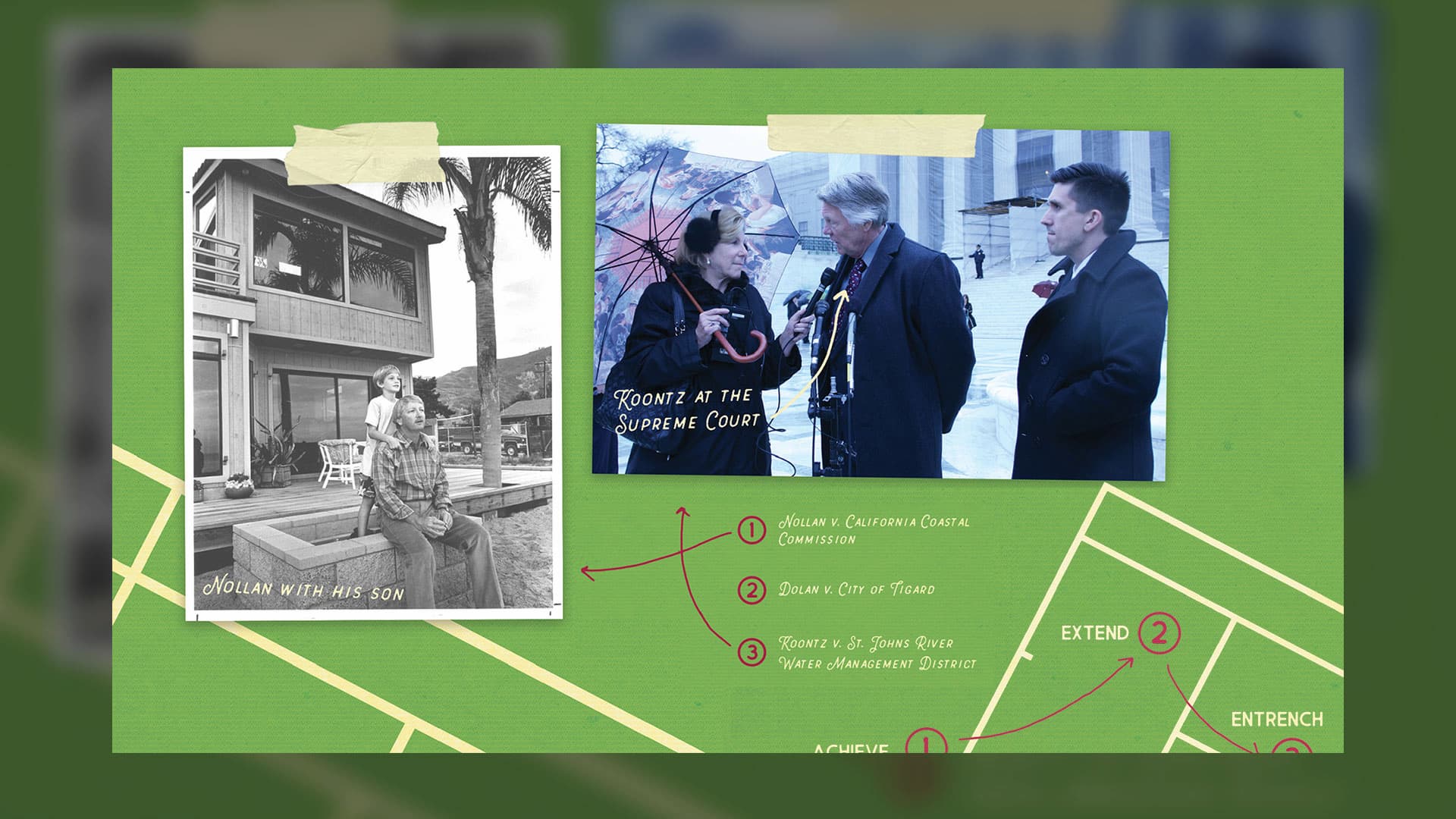WHAT IS IT ACTUALLY like to deliver a Supreme Court oral argument? Here’s how four PLF attorneys remember their experiences arguing cases before the highest court in the land.

When I was in the taxi going to the Court for arguments, I remember seeing the pillars and pulling up to this massive stately building and thinking to myself, ‘What the hell am I doing here?’
It’s a palatial courtroom. There are columns all around, friezes all along the walls, and the ceiling is an amazing sight. But when you’re arguing, you don’t see any of that. All you see are the Justices right in front of you.
Finally I stood up and said, ‘May it please the Court….’ The butterflies went away. I was ready to go.
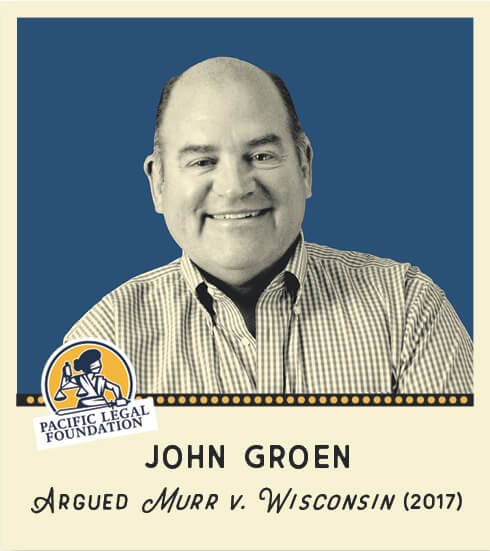
The U.S. Supreme Court is our Super Bowl. When you’re arguing your case, there’s a whole team behind you—all of PLF—but you’re the quarterback, and it’s an adrenaline rush to step into the courtroom and make your plays.
I got two sentences out before the questions started. And I love it when the Justices ask questions, because it tests your skills as an advocate. Whether it’s a softball or incredibly hard, it’s an opportunity to really try and knock it out of the park.
When you stand at the podium, you’re just a few feet from the Justices. For some people, the fact that you’re so close makes it intimidating. But for me, the fact that you’re so close creates a sense of intimacy and invites a discussion with the Justices. Ultimately, they’re people too and they’re interested in making the right decision.
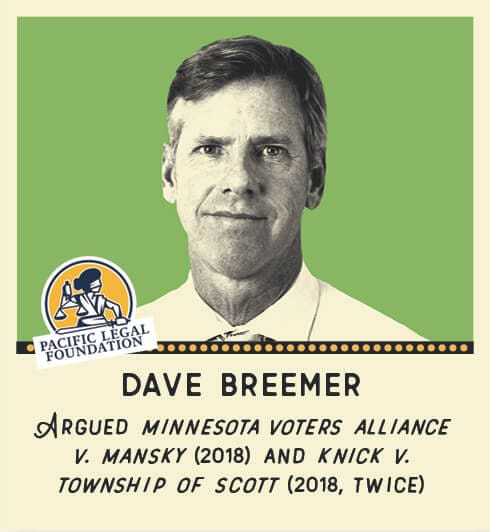
During Knick especially, I was confident during oral arguments. My confidence came from knowing this was a good case and I was on the right side. So even though I’m getting questioned by a Supreme Court Justice, I still have confidence in my case.
You can’t react emotionally during oral arguments. You answer their questions but don’t react to what they’re saying or their tone or anything like that. Think of it this way: If you can have a 30-minute debate with a loved one about something very important, and make calm, reasoned points without getting emotional, then you can go to the Court and do an oral argument well.
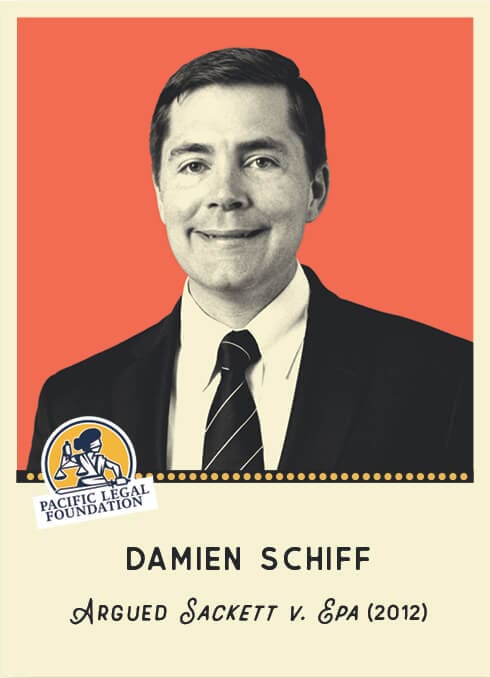
Even though it was January, I decided to walk to the courtroom to calm my nerves. When you get there, there’s a special lounge for the arguing attorneys to prepare. And it’s funny, everything’s so regal and official, and you’re litigating big issues, but the only thing they tell you is about how to raise or lower the lectern.
In my opening argument, Justice Scalia asked some challenging questions that worried me. I sent a note to [PLF Senior Attorney] Reed Hopper saying, ‘Have we lost Scalia??!!’ He just gave me a look that said, ‘Don’t worry.’ He was right. After the opposing counsel’s half-hour had elapsed, it was clear the Court had no interest in the EPA’s position. In that 30 minutes the emotions of the room had completely changed.
It was especially gratifying to have the Sacketts there during my oral argument. They said that they finally felt like their concerns were being listened to, that the Justices were taking the time to understand. Up until then, we had lost at every stage—but the Supreme Court ruled unanimously in their favor.

